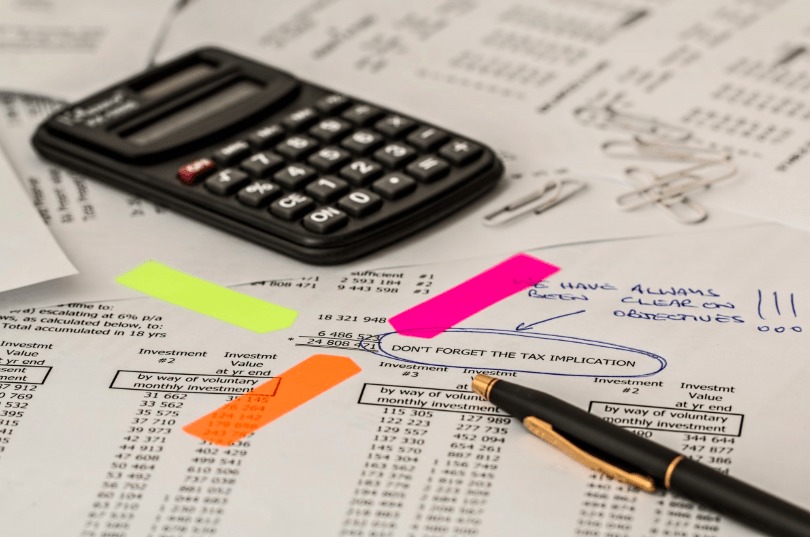As the April 15 tax filing deadline approaches, many people are racing to get their returns filed and get their hands on what they hope is a sizable refund.
One of the biggest challenges District residents face when trying to fulfill their obligation to the IRS is finding a qualified and reputable tax preparer to file their return.
There are no national licensing requirements for the tax preparation industry, which makes it perfectly legal for tax preparers to pop up during the filing season, to charge clients exorbitant rates or skim from the refund they would receive, or to simply bungle the job. A bill introduced in the Senate in July, The Protecting Taxpayers Act, aims to address these problems by empowering the IRS to oversee all paid tax preparers, among other things. However, similar legislation failed in the past and such concerns date back to at least 2002. In 2010, an effort by then-IRS Commissioner Doug Shulman to impose similar regulations was struck down in U.S. District Court, which said the IRS did not have this authority, something The Protecting Taxpayers Act would change.
Most tax preparers charge for their services and many national chains, such as H&R Block and Jackson Hewitt, focus their energies on getting you a large refund, not because they care about your finances but because they will try to sell you on a refund advance loan, for which they will give you an amount (usually up to around $3,000) in the form of a check or a prepaid debit card. A 2019 Consumer Reports analysis indicated that for all major tax preparation chains, interest or fees related to cash access and withdrawal were applied to refund advances. However, these services may still be useful to someone under serious financial pressure.
The mission of the non-profit Capital Area Asset Builders is to help people with low to middle incomes achieve financial independence through measures such as tax preparation, financial education, and assistance with the process of qualifying to purchase a first home. CAAB offers free financial education and money management classes. They encourage saving to meet your goals and they even have a program that matches the amount you save, called an Individual Development Account (which would be a great place to put some or most of the money you receive from a refund).
In a recent interview with Street Sense Media, CAAB Executive Director Joseph Leitmann-Santa Cruz said one of the most successful policies for lifting people out of poverty is the Earned Income Tax Credit. This specific credit is aimed at low- to middle- income taxpayers, primarily those with children. It is a progressive credit, which means that it phases out as your income increases. The EITC is designed primarily to help families deal with the rising costs associated with taking care of children.
There are income qualifications for the EITC. If you are single, you cannot have earned more than $15,270 in 2018 and if you have children, the amount you can earn and still claim the credit tops out at $49,194 for a parent of three of more children. If you are married and filing a joint return, the amount for three or more children is $54,884.
The District of Columbia provides eligible taxpayers with a similar tax credit, according to the D.C. Office of Tax and Revenue’s website. Taxpayers in the District who qualified for the federal EITC and did not claim the District Low Income Tax Credit are eligible for a D.C. EITC of up to 40 percent of the federal EITC. Individuals who do not qualify for the federal EITC also may qualify for the D.C. EITC if they are a non-custodial parent age 18-30 who has paid court-ordered child support for at least 6 months of the year.
In practical terms, a family of four with an income of $24,000 would be eligible for $6,400 as the federal EITC and $2300 as the D.C. EITC, for a total of $8,700, according to Leitmann-Santa Cruz.
One of the big challenges many people face in claiming the credit is that there is a sizable percentage of the population that is unbanked or underbanked. Because they do not have bank accounts and because the credit comes in the form of a debit card, these individuals may find themselves paying large fees to receive their money.
Rather than use a paid tax preparer, it may be in your best interest to work with a free organization that is concerned with helping you receive the largest refund you qualify for with no strings attached. CAAB provides free tax preparation services in Northeast, Southeast and Northwest D.C. All CAAB tax preparation sites are available to residents who have no dependents and make less than $35,000 and residents who have dependents and an income of less than $54,000.
Two of those clinics are located and run by the business schools of George Washington University and Howard University. You also have the option to file your tax returns online for free if you make no more than $66,000. To take advantage of this option, visit http://tinyurl.com/file-free-IRS.




